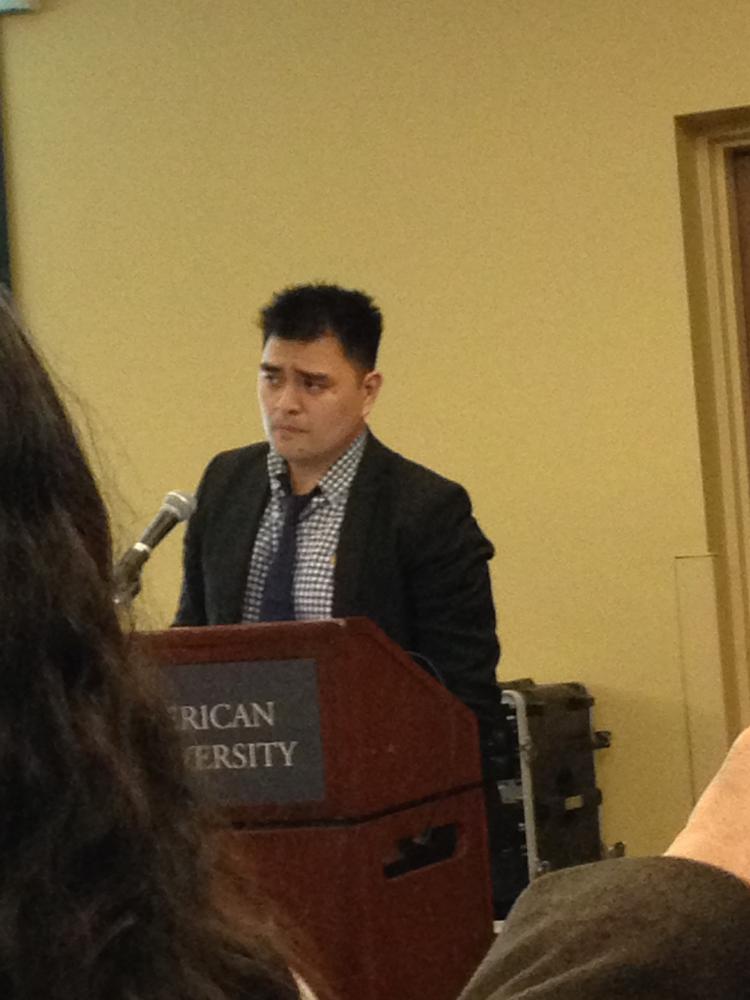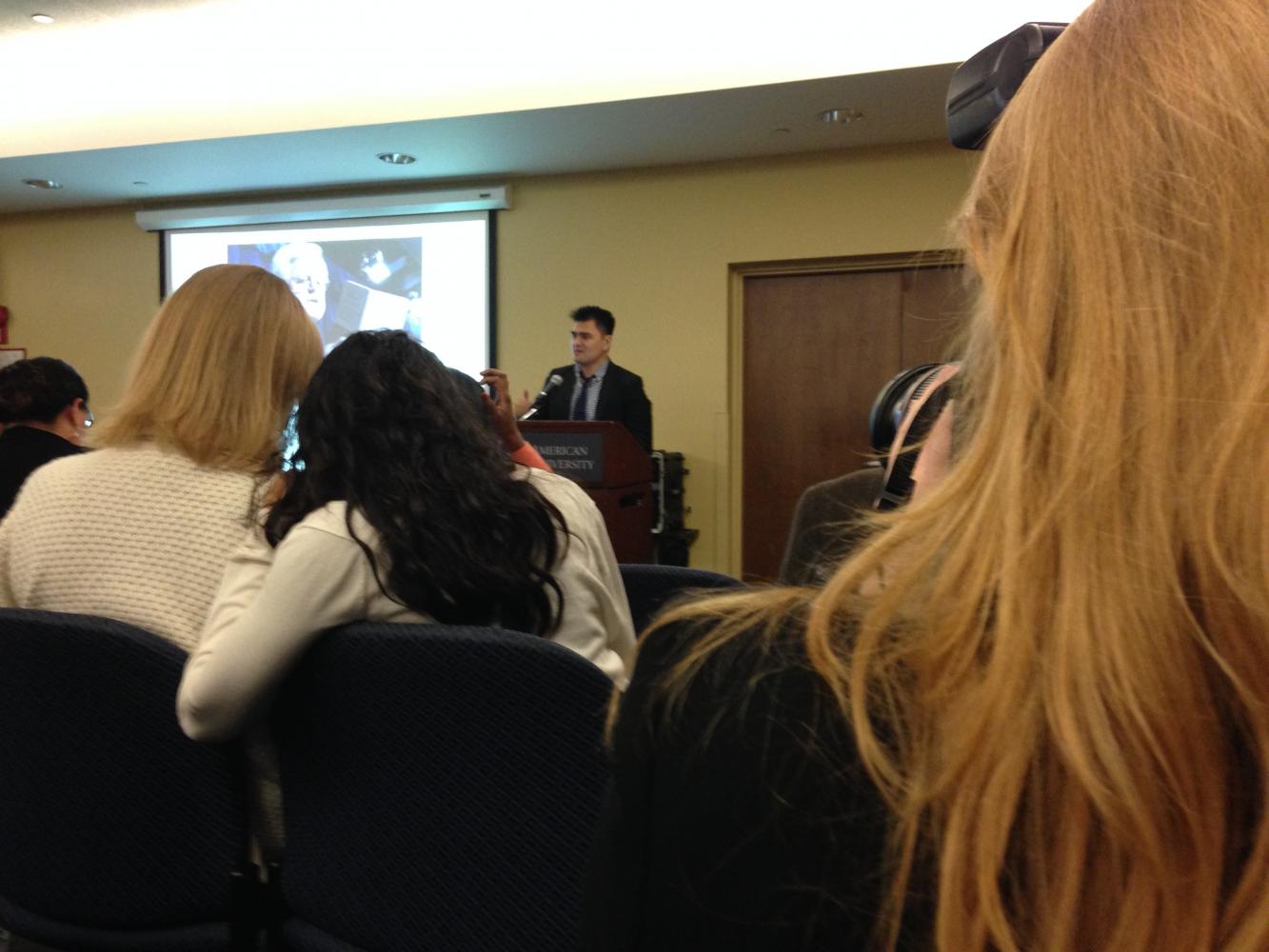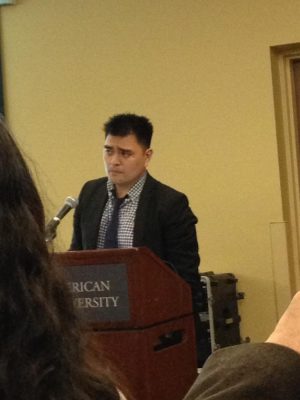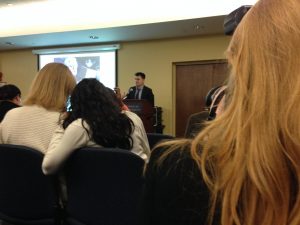Documenting the Undocumented: The Misnomer of Being Illegal
When Jose Antonio Vargas was 12 years old, he was shipped from his home in the Philippines to California to live with his grandparents. He did not know at the time that he was moving illegally nor that his grandfather saved $4,500 as a security guard to bring him to America.
On October 6 2014, Vargas, a Pulitzer Prize winning journalist, spoke to American University faculty and students at an event sponsored by the Kennedy Political Union in conjunction with Delta Phi Epsilon, the Center for Diversity and Inclusion, and AU College Democrats.
He spoke on his new documentary Documented, and his journey writing and advocating for undocumented immigrants in the United States.
“How do you define American?” Vargas said to the audience.
His main theme for the evening was the idea that “immigration is stories.” He later said, “You know how people say Twitter and Facebook is a place for self indulgence? For some it is a place for people to share their experiences.”
Vargas relates the idea of how millennials interact with media to a change in the landscape and discourse surrounding immigration. Our generation is not just a news consumer, but also a news creator. This has created a shift in media. The incorporation of stories of people from every culture, identity, and intersection, not just the narrative of the white heteronormative male, has created the shift of transparency as the new objectivity.
This idea propelled him to “exercise the radical form of transparency” in allowing him to out himself as an undocumented citizen in 2011.
When Vargas outed himself in a New York Times Magazine essay entitled “My Life as an Undocumented Immigrant,” the most confusing thing to happen to him was the silence of the American government. He was not contacted nor deported by the government when, at the same time, the Obama administration was deporting at high rates.
“This is a metaphor for America. You know [undocumented citizens] are here, you see us, but as long as you are comfortable, no comment,” Vargas said.
Vargas has used his story to create the organization Define American. According to the official website, this organization is a “media and culture campaign using the power of story to transcend politics and shift conversation around immigration, identity, and citizenship in America.”
Vargas is using stories to fight how immigration is perceived in America.
He says that there is a misnomer on the word illegal, “I, as a person, am not illegal, I am here illegally.”
This misuse of illegal has perpetuated “the gap between perception and reality.”
He says, “We cannot get anything done if politicians continue to think we are pawns for them” in the increasingly non partisan fights in congress.
This is why he has started the project Define American. He hopes to show the nature of immigration and its fluid state by sharing stories. By using the revolutionary idea of transparency as objectivity, and the new culture of news millennials have created, he believes change can happen.
While reflecting on his movement, Vargas is optimistic that immigration will be reformed in the future.
“I am an American, I am just waiting for my country to recognize it.”

Senior studying journalism and computer science. Has been known to cry over Chicago. I'm really interested in figuring out how journalism can be used as...















